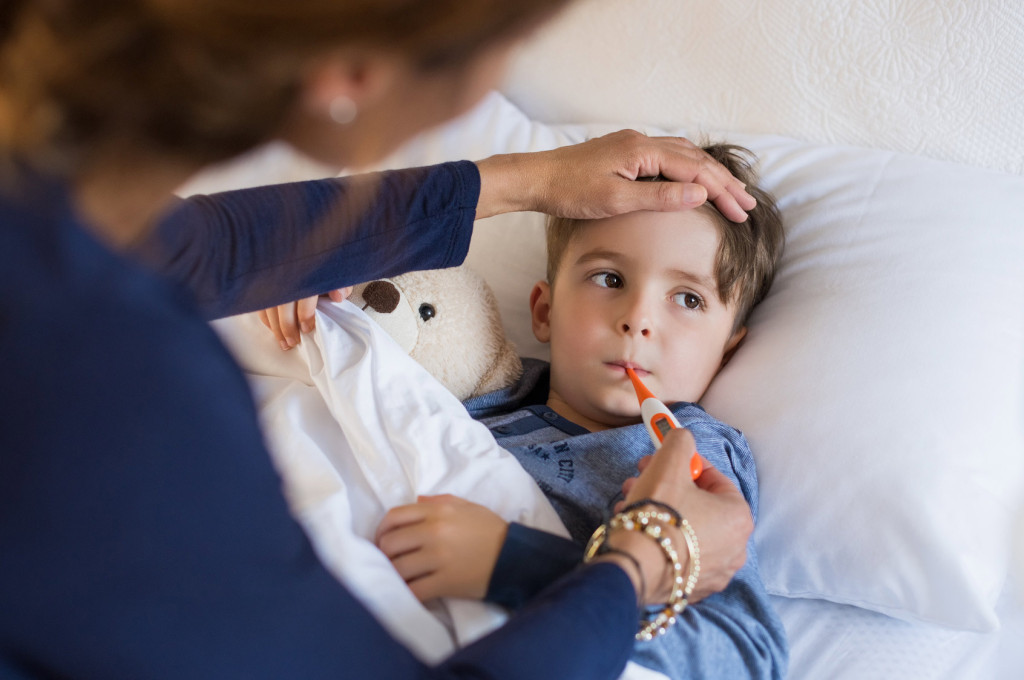It inevitably happens at some point in the year; your child wakes up with a sore throat and runny nose and pleads with you to stay home from school. What do you do? You don’t want to risk getting other children sick, but you also don’t want to let them get in a habit of staying home with every case of the sniffles. Here are guidelines to follow when determining whether or not to keep your child home from school:
Do they have a fever?
When in doubt, check your child’s fever. Whether they are complaining about a stomachache or a sore throat, a fever will help you identify how severe their illness may be. In general, your child should be fever free for 24 hours before returning to school in order to limit the spread of germs.
Will they be productive?
If it seems that your child would be completely unable to focus due to a cough or cold, they would likely be better staying home than attending school. When children are sick, they may be too busy blowing their noses to pay attention to what their teacher is saying. They can always catch up on schoolwork when they return.
Are they able to eat breakfast?
If your child is experiencing symptoms of a stomach bug, wait to see if they are able to keep breakfast down before sending them off to school. This will help you determine if their unsettled stomach is due to food poisoning or another condition. Take their temperature and bring your child to their pediatrician if symptoms persist.
Are they frequently asking to stay home?
Sometimes, children can start exhibiting school-avoidance behavior. School avoidance and school refusal occur when your child experiences anxiety at the idea of attending school. They may tell you they have a stomachache or headache, which can be physical manifestations of this behavior. Talk to them about why they do not want to attend school, and if appropriate, seek advice from school administrators, a mental health professional, or your child’s pediatrician.
When your child is home from school, make sure they are drinking enough water and getting rest. Encourage frequent hand washing both at home and once they are back in school. If your child is on antibiotics for an ear infection, strep, eye infection or other similar bacterial infections, make sure they have the medicine in their system for at least 24 hours before returning to school.


